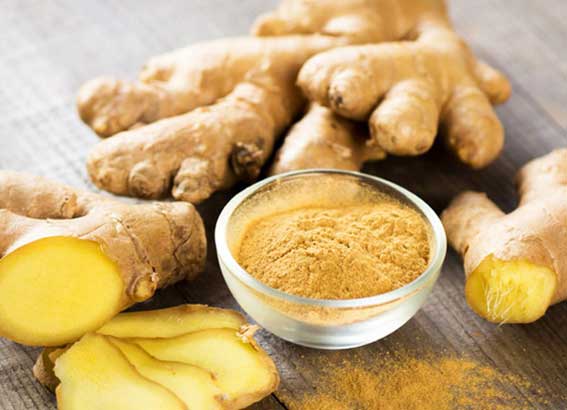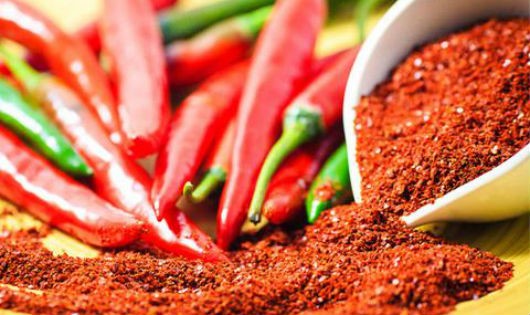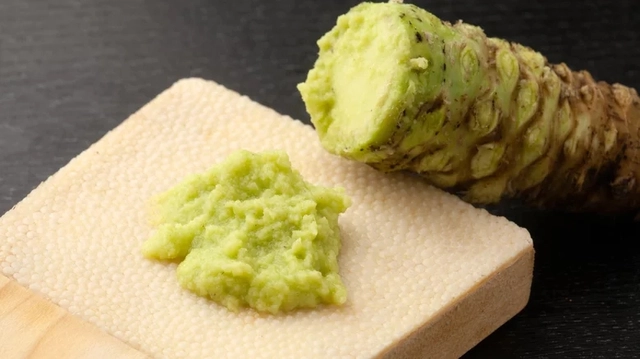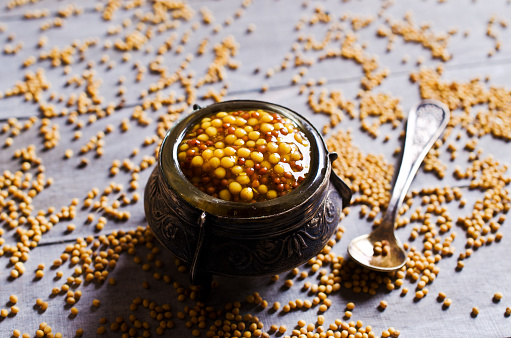There are many ways to maintain a youthful appearance and improve overall health. Incorporating natural spices into your meals not only adds flavor but can also provide a variety of health benefits.
Nutrition researchers say there are more than 100 common spices used in cooking around the world, and some have been shown to be concentrated sources of antioxidants – substances that protect the body’s cells from damage.
Spices are plant-based substances that can be used to flavor food. They also contain various compounds that may improve the symptoms of certain medical conditions or protect against the development of cancer and chronic diseases.
Spices have been used for health and culinary purposes since ancient times. Many have become staples in traditional medicine and are known for their potential anti-aging properties.
1. ‘Naming’ 5 spices that help keep the body healthy

Ginger is good for health like promoting healthy blood flow, supporting heart health, maintaining joint function, brain, digestive problems and healthy skin.
Ginger has been used for centuries in many cultures as a natural remedy. It increases circulation and has anti-inflammatory properties. By promoting healthy blood flow, ginger supports heart health, helping to maintain joint and brain function. It is also commonly used to relieve digestive problems such as indigestion, nausea.
Active compounds in ginger, such as gingerols and shogaols, are thought to help fight harmful bacteria, potentially boosting the immune system. Additionally, by increasing circulation, ginger may contribute to healthier skin, as improved blood flow nourishes the skin and promotes a youthful complexion.
How to use ginger:
- Ginger tea: Steep slices of fresh ginger in hot water to make a cup of ginger tea.
- Cooking: Add grated ginger to stir-fries, soups and sauces.
- Baking: Use ground ginger in cookies, cakes and breads for a spicy, warming flavor.
Turmeric
Turmeric is a vibrant yellow spice commonly used in Asian cuisine and traditional medicine. It contains curcumin, a compound with powerful antioxidant and anti-inflammatory properties. Traditionally, turmeric has been used to relieve joint discomfort, support digestive health, and ease menstrual irregularities.
Turmeric is also used in traditional skin treatments. Turmeric’s anti-inflammatory properties help soothe the skin, and some believe it acts as a natural sunscreen by protecting the skin from ultraviolet (UV) rays. Its antiseptic and antibacterial qualities aid in healing and promote overall skin health.
How to use turmeric:
- Turmeric milk: Mix turmeric powder with warm milk and honey to make a soothing drink.
- Cooking: Incorporate turmeric into curries, rice dishes, and soups.
- Smoothies: Add a dash of turmeric to smoothies for an antioxidant boost.

Cayenne pepper may contribute to healthy skin.
Chili powder is made from ground dried chillies, adding a mild to spicy flavour to dishes and a deep red colour. It contains capsaicin, the compound that gives chillies their heat, which improves circulation. Increased blood flow can contribute to healthy skin by ensuring skin cells receive enough nutrients and oxygen.
Chili powder is also rich in vitamins, especially vitamin C, which is essential for the production of collagen – a protein that keeps skin firm and youthful. By supporting collagen synthesis, vitamin C helps reduce the appearance of fine lines and wrinkles. Furthermore, the antioxidant properties of chillies can help protect the skin from environmental pollutants.
How to use chillies:
- Spice: Sprinkle chillies on foods
- Cooking: Use chillies to add richness to stews, soups, etc.
Wasabi

Wasabi may contribute to overall health
Wasabi is often served with sushi and is known for its strong, spicy flavor. It is a member of the broccoli and cabbage family and contains compounds that may support the body’s natural detoxification process.
The isothiocyanates in wasabi are thought to have anti-inflammatory properties that may help support joint health and respiratory function. Some studies suggest that these compounds may contribute to a reduced risk of cardiovascular problems by supporting healthy blood vessel function. Additionally, wasabi’s potential antimicrobial properties may contribute to overall health.
How to use wasabi:
- Condiment: Use wasabi with sushi, sashimi, or noodles.
- Flavor enhancer: Add a small amount to sauces and dips for a spicy kick.
- Cooking: Try wasabi-flavored peas or nuts for a spicy snack.
Mustard Seeds

Mustard seeds are loaded with nutrients that help improve digestion, promote healthy skin and flexible joints…
Mustard seeds are a small powerhouse packed with nutrients. They are an excellent source of selenium, a mineral that acts as an antioxidant, helping to protect cells from damage caused by free radicals. Antioxidants like selenium are essential for maintaining healthy skin and may contribute to a youthful appearance.
Mustard seeds also contain mucilage, a thick gel that can soothe the digestive tract. By supporting the lining of the stomach and intestines, mucilage improves digestion, nutrient absorption, and filtering out potential toxins and pathogens. The anti-inflammatory properties of mustard seeds may also promote healthy skin and flexible joints.
How to use mustard seeds:
- Cooking: Add mustard seeds to curries, stews, and pickle recipes.
- Condiments: Use ground mustard in spice blends, marinades, and salad dressings. Enjoy mustard sauce on sandwiches and meats.
2. Incorporate spices into your diet
Adding these natural spices to your meals is a simple way to enhance the flavor of your dishes and their potential health benefits. However, introduce these spices gradually to allow your palate to adjust to the new flavors when you first use them. Also, experiment with combining these spices to create unique, flavorful dishes, and try to use fresh ingredients to maximize the flavor and potential health benefits.
While these spices have been linked to a variety of health benefits, it is important to use them as part of a balanced diet. Excessive consumption carries the risk of side effects in some people. For example, ginger and turmeric can interact with certain medications, such as blood thinners. Consuming large amounts of wasabi can cause digestive upset, and eating large amounts of mustard seeds can cause gastrointestinal irritation. Therefore, any allergies or sensitivities that an individual may have should be considered.





